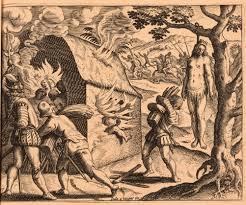During Elizabethan era, occupation varies. People would do every trick in the book just to survive. There were so many things to do especially since the time seems to be changing in the blink of an eye. Professions would vary from a simple task of catching a rabbit to working with the queen.

Below are the lists of Elizabethan England occupations
- Acrobat- they were known to do amazing stunt just to entertain people
- Apothecary- dispensed herbal medicines which were created from the blend of plants, herbs, and roots.
- Astrologers- known as mystical being. They are skilled in reading astronomical bodies and relate them in every person’s life.
- Barber- although they are usually seen cutting hair, they were also skilled in terms of other personal care like doing the job of a surgeons, dentist, and blood-letters.
- Blacksmith- even though it was a lowly occupation, it was regarded as the most significant occupation of the time. Blacksmiths were the people who forged weapons, repairs broken armor, and even sharpened weapons.
- Bottler- they manage the storing and giving out of wines.
- Butler- in charge for the castle cellar
- Bower- an interesting occupation of making bows.
- Candlemaker- as the name implies, they were the one responsible in the production of candles, lanterns, and torches.
- Carpenter- they were not merely limited in building houses and furniture rather they were all-around individuals who knows just anything about wood. They are known as elite tradesmen.
- Chamberlain- responsible for the entire jobs that has something to do with the Chamber.
- Chaplain- responsible for all religious activities.
- Clothier- creates clothes used by the nobles. They should have knowledge about expensive materials.
- Cook- employed in the kitchen to cook different kinds of foods.
- Cordwainer- someone who manufacture shoes.
- Cottar- known as one of the lowest occupation. The infirm and the olds are known to have this kind of profession.
- Gardener- should possess awareness about plants and herbs.
- Gond Farmer- term used for dung.
- Harker- they are the one who declare announcements given by the queen.
- Herbalists- they planted and sustain medicinal plants.
- Jester- also known as the Fool, they would entertain the Queen to laugh.
- Knight- they would fight and uphold the safety of the Queen.
- Messenger- carries receipts, commodities, and letters.
- Moneylender- they were the Elizabethan bankers.
- Page- this is a work than includes a very young man, usually 7 years old. They are tasked to wait at the table and oversee the Lord’s clothes as well as assist in dressing.
- Painter- since castles are expected to be colorful, they employ the service of a painter.
- Physician- an esteemed occupation that would cure people’s sicknesses.
- Potter- they were the one who produced pots and anything made of clay and ceramics.
- Scribe- unmarried woman.
- Steward- assists in the household administration.
- Squire- a junior to the knight. They should be knowledgeable enough about the Code of Chivalry.
- Watchman- accountable for the castle’s security.
Services provided during Elizabethan era
Making a Portrait – Limner
Provide Armour – Armourer
Arrows – Fletcher
Sell Books – Stationer or bookseller
Bows – Bowyer
Cloth – Mercer
Dentistry – Barber Surgeon
Drugs etc. – Apothecary
Hats – Milliner or Hatter
Horseshoes – Farrier
Legal Service – Lawyer
Other iron work – Blacksmith
Ready made clothes – Draper
Shirts/Smocks – Seamstress
Suit of Clothes – Tailor
Roles of various people
Stapler – Buy / sell raw wool, silk and linen.
Draper – Wholesale clothes dealer, ready-made garments
Mercer – Clothes retailing: Fabric store owner. silk mercer or a wool mercer
Man of Business – ccountant, looking after investments
Steward – Looking after running of estates.
Factor – Doing business for someone else in London, or in another country.
Nurse – Taking care of infants and young children.
Wet Nurse – Breast feeds the baby in early months, even upto 2 years
Tutor – Educating children
More Info On- Elizabethan Era Social Classe, Elizabethan Lower class versus upper class, Elizabethan social and Society, England Education in Elizabethan Period
